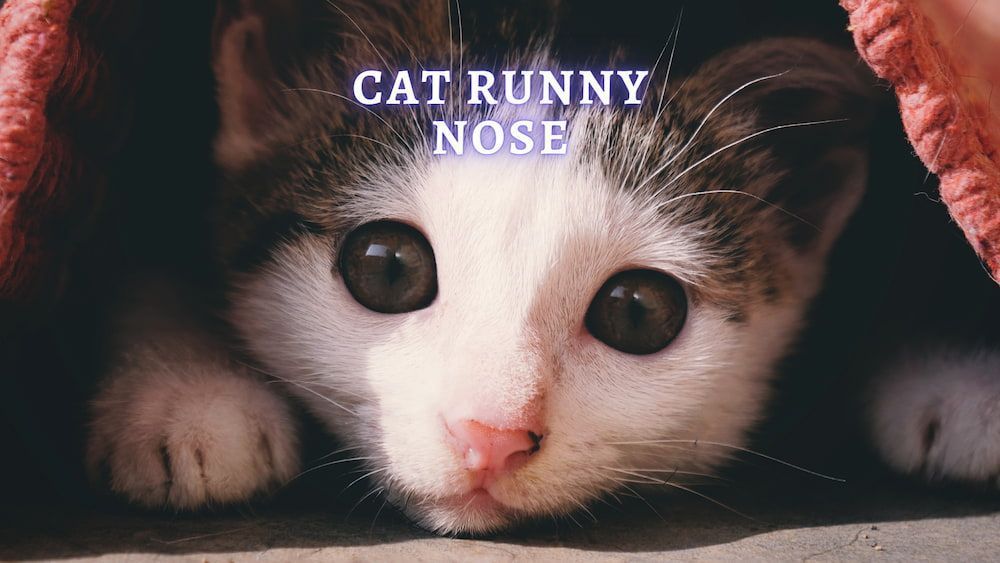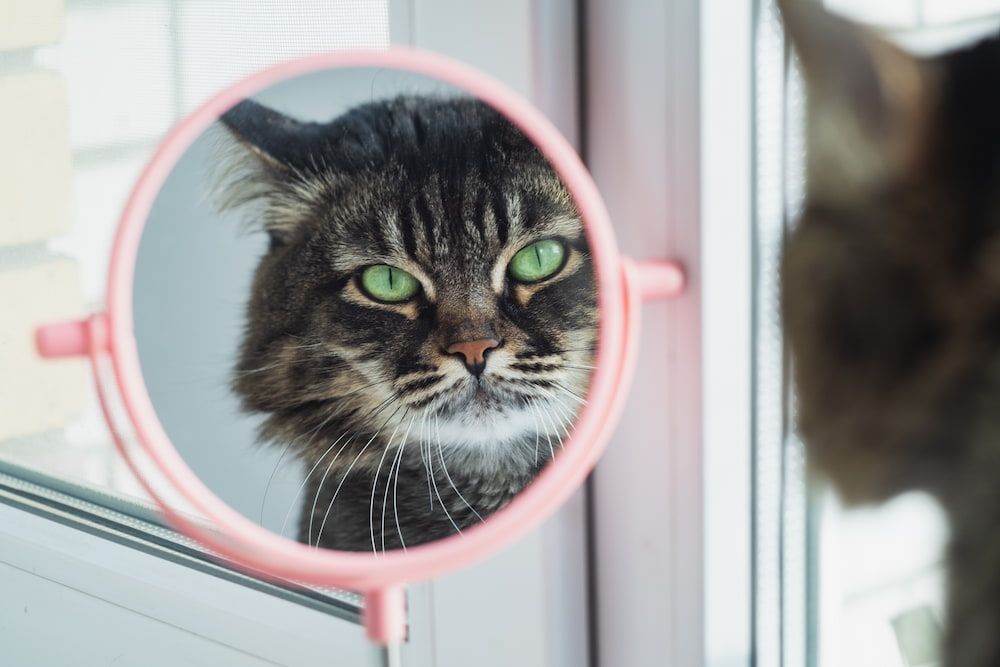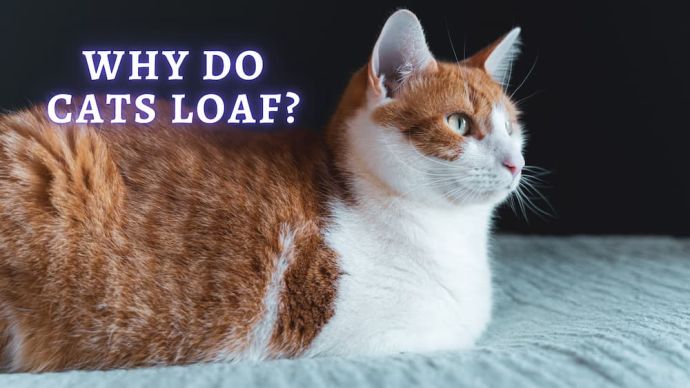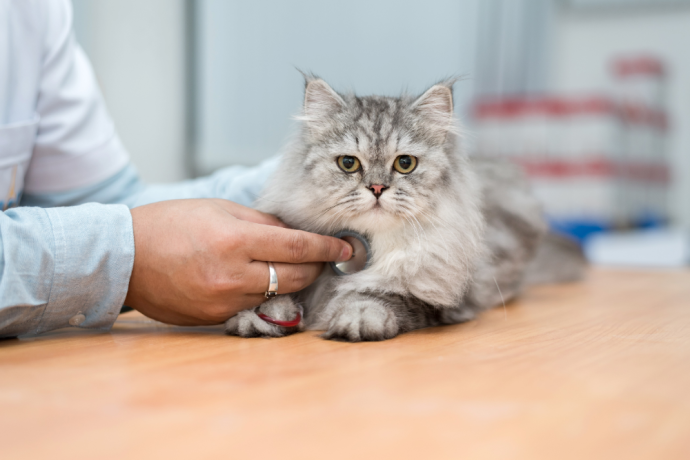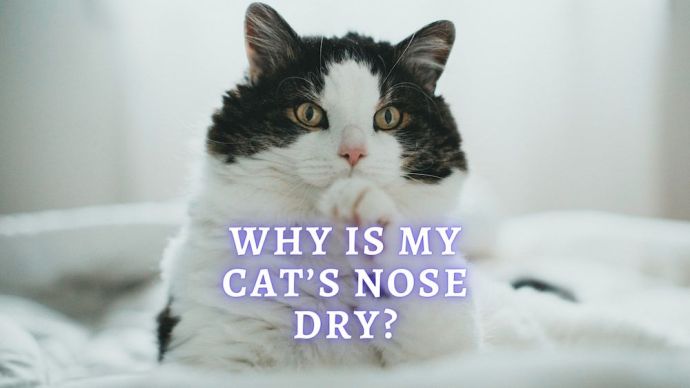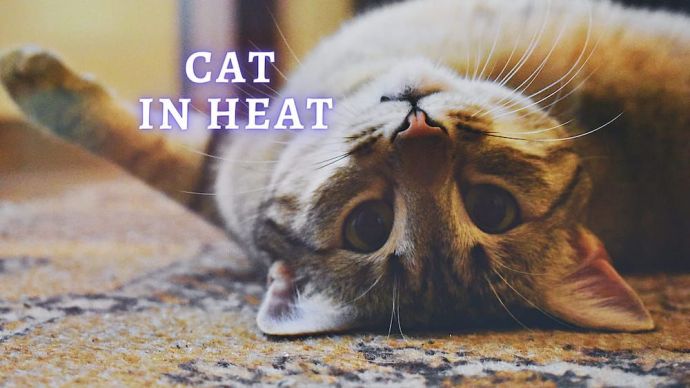Cat Runny Nose: Does My Cat Have a Runny Nose?
Written by:
Author: Carol Young
Carol has worked in specialty, emergency, mixed animal and general veterinary practices, and enjoys all aspects of veterinary medicine. Her special areas of interest include anesthesia, critical care, emergency, dentistry, internal medicine and small animal nutrition.
View all 62 articlesLearn about our editorial process and veterinary review board.
Viewed: 231
Updated on: 03/27/2023
Runny noses can happen in cats, and just like in humans, they can happen for a number of reasons. If your feline friend’s nose is a bit runny, a cat runny nose may not be anything to worry about, but in others, it may be a sign of a medical condition or illness that should be checked by your veterinarian.
Runny noses and nasal discharge in cats can be caused by allergies, viruses, respiratory irritants, bacterial infections, and other causes. If you’re curious about why cats get runny noses, keep reading and know when to call your veterinarian for treatment.
Symptoms of Runny Noses in Cats
Most cats will show other symptoms besides a runny nose, which include some listed below:
- Sneezing
- Nasal discharge
- Fever
- Weepy eyes
- Mouth ulcers
- Nasal ulcers
- Sniffling
- Hoarse meow
- Loss of appetite
Depending on the cause, a cat can have one or more of the symptoms listed above.
Common Causes of Runny Nose in Cats
There are several causes of runny noses in cats, and most tend to be minor and don’t require veterinary treatment, but some can cause real health issues for your cat. Common causes of nasal discharge include some of the following:
- Dental or periodontal disease: Oftentimes dental issues such as abscesses, infected gums or periodontal inflammation can cause nasal discharge which can range in color from clear, to yellow or green. In these cases, contact your veterinarian immediately.
- Eye inflammation/conjunctivitis: The eyes and nasal cavities share a drainage system (called the nasolacrimal apparatus) that carries tears from the surface of the eyes to the nose. When one or both eyes are inflamed or infected, this can cause drainage and nasal discharge.
- Viruses: Most upper respiratory infections in cats are caused by viruses, like feline herpes virus and caliciviruses which can cause nasal discharge and weepy eyes.
- Bacterial infections: Bacterial infections are the second most common cause of runny noses. Some of the more prominent bacteria include Bordetella bronchiseptica and Chlamydophila felis. These infections can be treated by your veterinarian.
- Tumors: Some tumors or cancerous growths can cause inflammation and accompanying nasal discharge. For this reason, it’s important to contact your veterinarian if you have any concerns.
- Nasal polyps: Nasal polyps are non-cancerous growths that appear in the nasal passages of cats. These polyps can cause irritation and inflammation in the nasal passages which can result in a runny nose.
- Foreign body: A foreign substance or irritant can also cause inflammation, resulting in nasal discharge from your cat’s nose. If you suspect your cat has something up her nose, contact your veterinarian immediately.
- Upper respiratory infection: Another cause of runny noses in cats is upper respiratory infections or chronic upper respiratory infections which can create an inflamed nose and upper airway, resulting in nasal drainage.
- Allergies: Like humans, cats can have allergies too. Allergies can trigger inflammation, which in turn can cause a runny discharge and sneezing.
- Irritants: Cats that are exposed to perfumes, second-hand smoke, cleaning products, perfumes, and other products can develop respiratory signs such as sneezing, squinting, and nasal discharge.
- Trauma: Damage to the nose can cause discharge that can start out bloody and transform to clear or greenish-yellow as the swelling subsides.
If your cat has a runny nose, it’s more likely due to inflammation of the tissues in her nasal cavities or sinuses. However, if your cat has green or yellowish nasal discharge, this could be a sign of an infection and requires medical attention.
RELATED: Cat Eye Injury: Signs, Diagnosis, and Treatment
Diagnosis
A runny nose in cats is basically an inflammation of the nasal passages (also known as rhinitis). The surface of the nasal passages is lined with mucosal cells, cells that produce serous fluid in response to inflammation and irritation. Depending on the cause of inflammation, the color and thickness of the discharge can vary.
If your cat has a runny nose, it warrants a trip to the vet. Your veterinarian can diagnose the cause via several methods:
- Dental exam. Oftentimes runny noses can be caused by a tooth abscess or periodontal disease.
- Rhinoscopy. This is an examination of the nasal cavity with a specialized instrument that is passed through the nasal cavities.
- Biopsy of the nasal cavity. A biopsy is when your veterinarian collects a tissue sample from the nasal area. Biopsies can reveal the presence of cancerous o non-cancerous growths.
- Culture of discharge. Your veterinarian may suggest collecting a nasal sample to look for fungal growths or bacteria
- Shirmer tear test. This test is done to evaluate tear production, which can be related to nasal discharge.
Treatment
Treatment for a runny nose depends on the diagnosis. For example, if your cat has a bacterial infection, antibiotics will be prescribed. If the cause is an allergy or a virus, antihistamines and anti-viral medications may be prescribed. In turn, if the diagnosis is a fungal infection, then antifungals would be advised by your veterinarian.
If the cause includes nasal polyps, a tumor, or a foreign body, surgical removal may be recommended. Also, if your veterinarian finds that a bad tooth is to blame, a dental procedure and extraction of the offending tooth may be necessary. Finally, if your cat suffers from allergies, your veterinarian may recommend antihistamines or allergy treatment.
Prevention
The best way to prevent a runny nose in your feline friend is to make sure she is healthy and happy. This can be done by doing the following:
- Vaccines. Vaccines help protect your cat from infectious diseases that can cause illness and even death in some cases.
- Regular Veterinary Exams: Your veterinarian is your best resource in ensuring that your cat is healthy and free of illness or medical problems.
- Healthy/Balanced Diet; Make sure that your cat gets an appropriate diet that contains all of the necessary amino acids, fats, and vitamins to ensure good health.
- Water: Cats by nature aren’t big drinkers, but it’s important to keep your kitty properly hydrated. If your cat isn’t a big drinker. Try feeding more wet food, or invest in a water dispenser or fountain.
RELATED: How long can a Cat go without Water? (Vet Advice)
Conclusion
There are many reasons that cats get runny noses, and some may be benign while others may be a sign of something more serious. If your cat suddenly develops a runny nose, with or without other symptoms, make an appointment with your veterinarian.
People also ask
Is it normal for a cat to have a runny nose?
A runny nose is not exactly normal in cats because it’s almost always a sign of inflammation. This inflammation can be caused by a variety of factors, including allergies, a virus, or an infection.
How can I help my cat’s runny nose?
Depending on the cause, you can best help your cat’s runny nose by contacting your veterinarian. Your vet can diagnose the cause and recommend treatment.
When should I take my cat to the vet for a runny nose?
Although runny noses occur in cats just like humans, they can cause some discomfort for your kitty. If you are concerned about any amount of nasal discharge, contact your veterinarian.
How long does a cat’s runny nose last?
The answer to this depends on many factors, such as the cause, the age of your cat, and your cat’s environment. If your cat has been diagnosed with a bacterial infection, the nasal discharge may clear up quickly with antibiotics, however, if the cause is related to a bad tooth, it may not clear up until the tooth is extracted. It all depends on the diagnosis and treatment.
 Cat Care Why Does My Cat Attack My Legs? 10 Reasons Why and What To Do About It (Vet-Approved Advice)
Cat Care Why Does My Cat Attack My Legs? 10 Reasons Why and What To Do About It (Vet-Approved Advice) - 46013
- 21
 Cat Care Can Cats Control Their Tails? How Much Control Do Cats Have Over Their Tails?
Cat Care Can Cats Control Their Tails? How Much Control Do Cats Have Over Their Tails? - 113
- 0
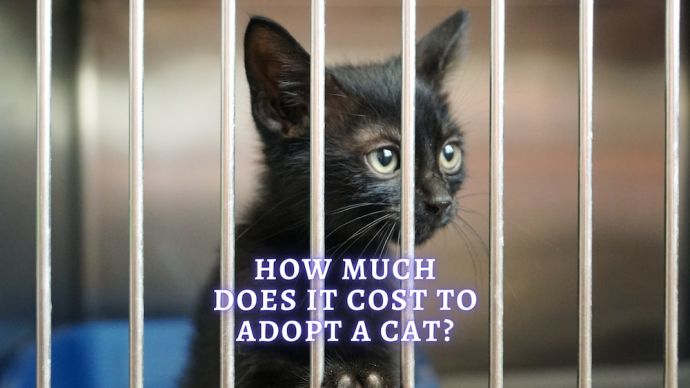 Cat Care How Much Does It Cost To Adopt A Cat? Costs to Consider When Adopting a Pet
Cat Care How Much Does It Cost To Adopt A Cat? Costs to Consider When Adopting a Pet - 74
- 0
 Cat Care Why Does My Cat Attack My Legs? 10 Reasons Why and What To Do About It (Vet-Approved Advice)
Cat Care Why Does My Cat Attack My Legs? 10 Reasons Why and What To Do About It (Vet-Approved Advice) - 46013
- 21
 Cat Veterinary Tips Cat Stomach Gurgling: Vet Advice on Why is Your Cat Stomach Gurgling?
Cat Veterinary Tips Cat Stomach Gurgling: Vet Advice on Why is Your Cat Stomach Gurgling? - 36469
- 4
 Cat Veterinary Tips My Cat Lost its Voice: Can Cats get Laryngitis? (Vet Advice)
Cat Veterinary Tips My Cat Lost its Voice: Can Cats get Laryngitis? (Vet Advice) - 23554
- 13









